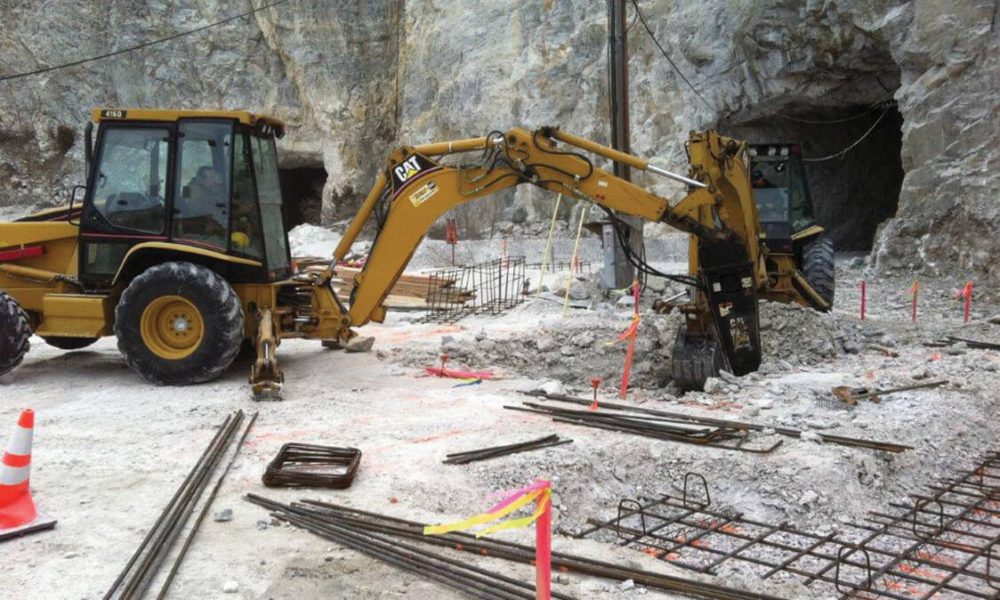Budget-friendly Lancaster Excavation - High Quality Excavation at Competitive Rates
Budget-friendly Lancaster Excavation - High Quality Excavation at Competitive Rates
Blog Article
Comprehensive Excavation Approaches: Grasping the Basics for Success
In the world of building and civil design, the significance of effective excavation techniques can not be overemphasized. The mindful planning, accurate implementation, and precise focus to information required in excavation projects require a thorough method that includes numerous basic elements. From preliminary dirt evaluation to the application of precaution and regular progress surveillance, mastering these core elements is essential for accomplishing success in any type of excavation venture. The true mastery lies not merely in recognizing these principles yet in flawlessly incorporating them to browse the intricacies of excavation tasks with skill.
Comprehending Excavation Project Preparation

Successful excavation jobs are improved the structure of precise and extensive planning. The preliminary phase of any type of excavation job is the preparation phase, where essential decisions are made that can dramatically affect the outcome of the task. During this phase, it is necessary to collect all relevant info concerning the website, including topographical studies, dirt composition, and any potential dangers that may exist. Recognizing the project budget plan, range, and timeline constraints is essential for producing a thorough excavation strategy that makes certain the project's success.
One key aspect of excavation project preparation is the advancement of an in-depth timeline that details the sequence of activities, deadlines, and milestones. This timeline functions as a roadmap for the project team, allowing them to track progression and make essential adjustments to guarantee the project remains on timetable. Furthermore, a well-defined spending plan that makes up all costs, including tools leasing, labor expenses, and materials, is vital for avoiding cost overruns and delays. By thoroughly considering all these variables during the planning stage, excavation tasks can be implemented effectively and efficiently, leading to successful results.
Dirt Evaluation and Site Evaluation
Carrying out comprehensive soil evaluation and website assessment is a crucial action in the preparation phase of any type of excavation project. Soil evaluation entails determining the make-up, structure, and homes of the dirt at the excavation website. This info is important for recognizing the dirt's bearing ability, moisture material, and potential for erosion, which are key consider figuring out the excavation approaches and devices needed for the job.
Site assessment exceeds soil analysis and encompasses a broader assessment of the overall website problems. This examination consists of determining any type of possible threats, such as below ground energies, ecological worries, or unpredictable terrain, that could influence the excavation procedure. By completely reviewing the website, task supervisors can create effective excavation strategies that focus on safety and security, performance, and environmental security.
Utilizing advanced modern technologies like ground-penetrating radar, dirt sampling, and drone surveys can boost the precision and performance of soil evaluation and website analysis. Spending time and sources in these initial actions can ultimately save time and protect against expensive hold-ups or problems throughout the excavation procedure.
Tools Selection and Application
Effective excavation projects count heavily on tactical equipment option and usage to guarantee ideal efficiency and productivity. Selecting the right equipment for the task is vital in taking full advantage of effectiveness and lessening downtime. Elements such as the kind of soil, deepness of excavation, and project scope play a substantial function in identifying one of the most appropriate equipment for the job at hand.

Along with picking the proper devices, correct utilization is key to job success. Operators must be educated to take care of the devices securely and efficiently - dump truck companies in ohio. Routine upkeep checks and prompt repair services assist protect against failures and make certain regular performance throughout the task
Safety And Security Procedures and Rules Conformity
In the world of excavation jobs, prioritizing precaution and compliance with guidelines is paramount to guaranteeing a protected and legally audio functional setting. Precaution encompass a variety of techniques, including performing thorough website evaluations, applying correct signs and barriers, and giving ample security training for all workers included in the excavation process. Adherence to laws, such as OSHA demands in the USA, ensures that the excavation project fulfills the required criteria to safeguard workers, onlookers, and the surrounding setting.

Surveillance Development and Adjusting Approaches
Just how can forecast supervisors properly track the innovation of excavation jobs and adapt their techniques accordingly to enhance results? Monitoring progress is crucial for making certain that excavation projects remain here on track and fulfill due dates. Project supervisors can utilize different tools and strategies to track progression, such as everyday report card, normal site examinations, and progressed monitoring modern technologies like drones and general practitioners tracking check over here systems. By constantly keeping an eye on the project's improvement, managers can identify any prospective delays or problems early on and take positive measures to address them.
Conclusion
Finally, grasping the fundamentals of thorough excavation methods is essential for the success of any task. By recognizing project preparation, examining dirt and website conditions, picking proper equipment, abiding by safety and security regulations, and checking development, project supervisors can ensure a smooth and effective excavation procedure. Executing these approaches will bring about effective results and minimize prospective threats or problems throughout the excavation job.
The first phase of any kind of excavation project is the planning phase, where essential choices are made advice that can significantly affect the end result of the project. Comprehending the job timeline, budget plan, and scope restrictions is important for developing a comprehensive excavation plan that makes certain the task's success.
How can project supervisors properly track the advancement of excavation jobs and adapt their methods appropriately to maximize end results? By carefully keeping track of development and being eager to adjust methods, task managers can boost the general success of excavation tasks.
By recognizing task planning, examining soil and website conditions, selecting suitable devices, complying with safety policies, and keeping an eye on progression, task supervisors can ensure a smooth and efficient excavation process.
Report this page